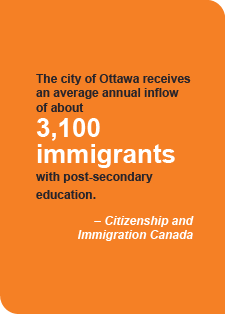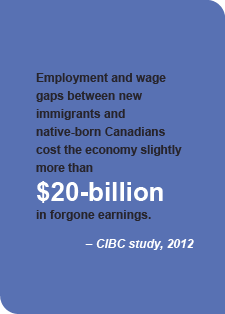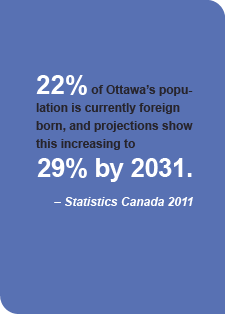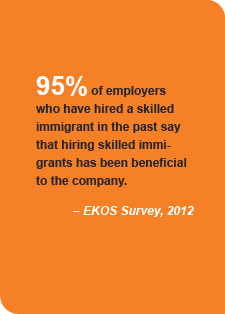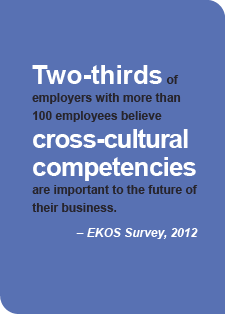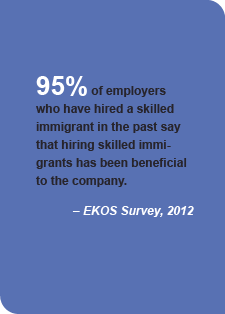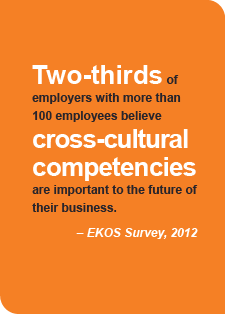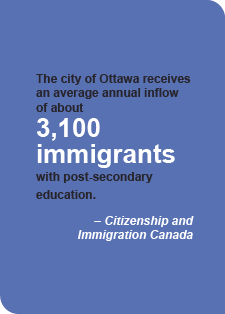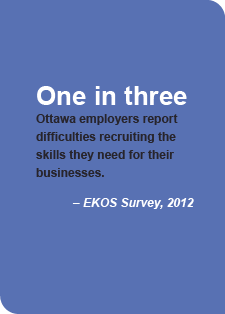Help Wanted, Seeking Senior Executives
As Canada’s demographic evolution is reducing the number of new labour market entrants with each passing year, skills shortages are already having a significant impact on several sectors in the Ottawa area. At the same time, internationally trained individuals increasingly comprise the most highly skilled and educated segment of the labour force. Within the next year, as has been widely reported, immigrant workers will account for 100 percent of local labour force growth, and, when their potential is recognized, they can also be part of the solution for employers’ mounting talent management and succession planning challenges.

While a growing number of employers have made the necessary adjustments to their recruiting process to facilitate effective hiring of internationally trained people, they may not be aware that these same considerations should also be addressed in their talent management and succession processes. Organizations could be filling senior positions with someone other than the best candidate if their internationally trained staff are passed over for promotions because of systemic factors that put them at a disadvantage.
For example, there is some evidence that internationally trained people tend to benefit less from key training opportunities. To maintain an effective pipeline of high-potential mid- to senior-level talent, organizations need to ensure their HR function has the capacity to recognize and develop the abilities of the internationally trained people in their organization. Some HR practices could include the following:
- Provide cross-cultural training for managers throughout the organization to help them recognize and develop the potential and skills of their internationally trained staff, and to develop appropriate career paths.
- Provide opportunities for internationally trained staff to develop soft skills, which are typically necessary to be considered for promotion in the Canadian workplace, and which will enable them to cultivate their professional relationships more effectively.
- Provide comprehensive, specific, and detailed feedback, and deliver it more frequently, which will help internationally trained staff develop a better understanding of how to build their potential in the Canadian work environment.
- Implement an internal mentorship program to facilitate more open career development discussions (often nigh-impossible with direct supervisors) — mentorships have been effective in improving the integration of internationally trained people and enhancing cultural competency in the workplace.
Integrating and retaining a qualified employee should be considered a long-term investment. In the January 2009 issue of workplace-mag.com, Laurie Blake points out that the cost of recruiting can be as high as 75 to 150 percent of the new employee’s entire first-year salary. Employers can reduce the recurrence of that cost, not only by hiring skilled immigrants, but also by developing their potential.
On the whole, giving due consideration to the skilled immigrant labour force can be an effective strategy to avoid long-term mid- to senior-level talent gaps.

